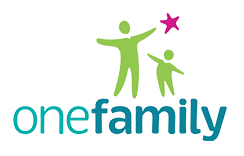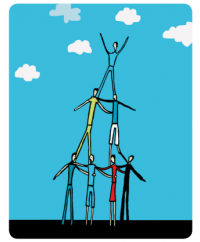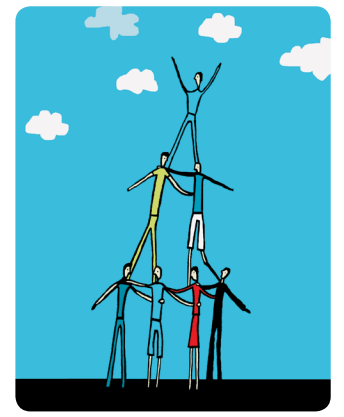One Family has summarised Budget 2017 changes which may be relevant to people parenting alone or sharing parenting, as announced on Tuesday 11th October 2016.
Social Welfare Payments
Basic Rate of Payment
Including One Parent Family Payment, Jobseeker’s Allowance Transition, Jobseeker’s Allowance, Carer’s Allowance and others.
This includes employment programmes such as CE, TÚS and Rural Social Scheme.
Proportionate increases in weekly payments for qualified adults will apply from March 2017 (applies to full rate payment recipients).
€5 weekly increase.
_______________________________________________
One Parent Family Payment & Jobseeker’s Transition
For those in employment, the weekly income disregard will increase from €90 to €110 from January 2017. This means that the first €110 of earnings will be ignored and half of the remainder of earnings will be assessed to give a new rate of One Parent Family Payment or Jobseeker’s Transition. Combined with the €5 basic rate increase, this should result in an increase of €15 per week for recipients of OFP and JST.
Income Disregard increased by €20 per week
_______________________________________________
Child Benefit
The current rate remains at €140 per month.
No change.
_______________________________________________
Secondary Payments
Fuel Allowance
Currently €22.50 weekly.
No change.
_______________________________________________
Education
Back to Education Allowance
Cost of Education Allowance (re)introduced per annum for all parents in receipt of Back to Education Allowance.
€500 Cost of Education Allowance annually.
Back to Education Allowance to increase by €5 per week.
_______________________________________________
School Meals
Funding for School Meals being increased so that 50,000 extra children can benefit, further details to be received.
Widening of the scheme.
_______________________________________________
Back to School Clothing and Footwear Allowance
The allowance paid for each eligible child aged 4-11 is €100. The allowance paid for each eligible child aged 12-22 is €200.
No change.
_______________________________________________
Work
Family Income Supplement
Household income thresholds remain at 2016 levels, and no qualifying hours criteria change.
No change.
_______________________________________________
Income Tax, PRSI and Universal Social Charge
Self Employed – Earned Income Tax Credit increased to €950.
Changes for self-employed.
USC – Three lowest bands each reduced by 0.5% and the €18,668 band raised to €18,772 from 1 January.
USC band changes.
_______________________________________________
Back to Work Enterprise Allowance
A proportionate €5 increase to Back to Work Enterprise Allowance and now accessible to Jobseekers moving to self-employment after 9 months, down from 12 months.
Proportionate €5 increase& eligibility expanded.
_______________________________________________
Minimum Wage
Increase to €9.25 from €9.15 per hour.
10c per hour increase.
_______________________________________________
Housing
Housing Assistance Payment
HAP – Additional €105 million (220% increase) for Housing Assistance Payment (HAP) to accommodate an additional 15,000 households and a total of over 21,000social housing applicants in private rented accommodation.
Further details to be received.
Allocation increase.
_______________________________________________
Other
Childcare
New – A new scheme, the Single Affordable Childcare Scheme, will commence in September 2017. It will provide means-tested subsidies, based on parental income, for children aged between six months and 15 years, and universal subsidies for all children aged six months to three years who are cared for by Tusla-registered childminders/care centres.
Households earning up to €47,500 net income will be able to avail of this subsidised childcare. The highest levels of subsidy will be provided to those on lower incomes, approximately €8,000 a year, based on the maximum of 40-hours childcare a week.
Single Affordable Childcare Scheme introduced.
_______________________________________________
ECCE Scheme
ECCE – There will be further roll-out of the Early Childhood Care and Education Scheme (ECCE) to apply to all children from age three until they start school.
ECCE Scheme expanded.
_______________________________________________
Medical Card
Medical card will be available for all children who receive Domiciliary Care Allowance. Prescription charges unchanged for those aged under 69.
Eligibility extended.
_______________________________________________
Christmas Bonus
Christmas bonus will be paid in December 2017 to long-term social welfare recipients (15 months or more)at a rate of 85% of their payment; this includes those on One-Parent Family Payment, Jobseeker’s Allowance Transition, Jobseeker’s Allowance, Back to Work Family Dividend, Carer’s Allowance, Disability Allowance, Widow/Widower’s/Surviving Civil Partner’s Pensions. This also includes employment and education programmes such as CE, JobBridge, Back to Work Enterprise Allowance, Back to Education Allowance, VTOS etc.
10% Increase.
_______________________________________________
For further information visit the official Government Budget page here
#Budget2017



 One Family has provided specialist family support services to diverse families since 1972 and understands the needs of professionals working with one-parent families, people who share parenting, and those experiencing separation. If you are a family support worker, social worker, youth worker, family therapist, educator, drugs project worker or counsellor, or deliver parenting/family supports and courses, our professional development programmes will help you to build on your skills, knowledge and approach.
One Family has provided specialist family support services to diverse families since 1972 and understands the needs of professionals working with one-parent families, people who share parenting, and those experiencing separation. If you are a family support worker, social worker, youth worker, family therapist, educator, drugs project worker or counsellor, or deliver parenting/family supports and courses, our professional development programmes will help you to build on your skills, knowledge and approach.


